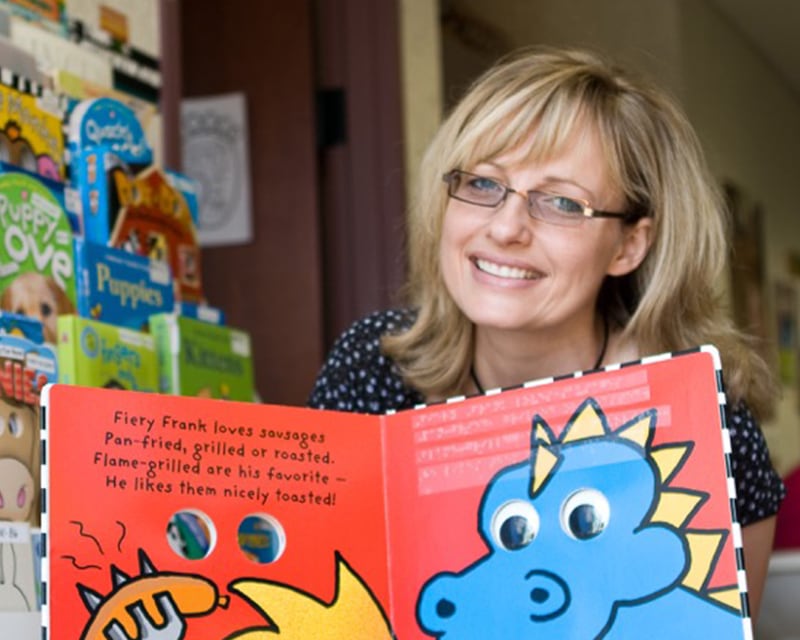Almost thirteen years ago, my husband took a new job, in a new city and I knew it meant starting over in a new job for me.
I found a job in Early Intervention at the Canadian National Institute for the Blind, a nonprofit organization that has been providing rehabilitation for people who are blind or have low vision for almost 100 years ago.
I loved the work with children and parents but I had entered a side of rehabilitation where occupational therapists are the minority and my OT training, to this point, did not prepare me for this. I read every book and resource I could find and attended the few conferences that were available and my budget could afford.
Fateful Encounter
Luckily, fate was on my side. In 2006, Mary Warren came to do a workshop in Calgary and that is where I first found about the UAB Graduate Certificate in Low Vision Rehabilitation program.
Finally, a formal way for me to acquire the education and credentials to help me feel more confident and competent. It would also prove to the well established professionals in the blindness/low vision field that an OT can be a valuable member of a team working with people with vision loss.
The UAB Low Vision program has also enabled me to go on and complete my post professional master’s degree.
The End of Isolation
It was a bit intimidating returning to a university program after 14 years, but what a great time to do it. Nothing like being able to integrate what you are learning into your daily practice and completing assignments and projects with real clients in mind.
The program also has connected me with skilled and knowledgeable instructors and a network of OTs in the U.S. and around the world where OTs are more involved in the provision of low vision rehabilitation.
This is a group of people I can still depend on for support with clinical questions and ongoing learning. No more isolation.
Since UAB Low Vision
- I worked with Corie Haslbeck, another UAB graduate from Canada, to develop a reference for OTs related to low vision. With this we presented a webinar for our national professional organization. We also worked with two other Canadian OTs to survey the current practice and education of OTs related to low vision across the country.
- I have had the opportunity to present at several national conferences on various topics including my UAB low vision research project.
- I am a valuable reference for OT students and practitioners looking for more resources related to low vision.
- I now work one day a week in a newly created OT position in a well-established low vision clinic at Rockyview General Hospital Eye Clinic.
A Brighter Future
In Canada, low vision rehabilitation funding is limited and the majority of the work has been left to a charity organization. There are current initiatives to increase government funding for low vision rehabilitation in Canada so the future may have more opportunities for health professions interested in working in this area.
Thanks to the UAB program, I feel I have the skills to help this area of rehabilitation to move into the future. Low vision rehabilitation has grown from an area of interest to a passion for me and I cannot imagine working in another field.
